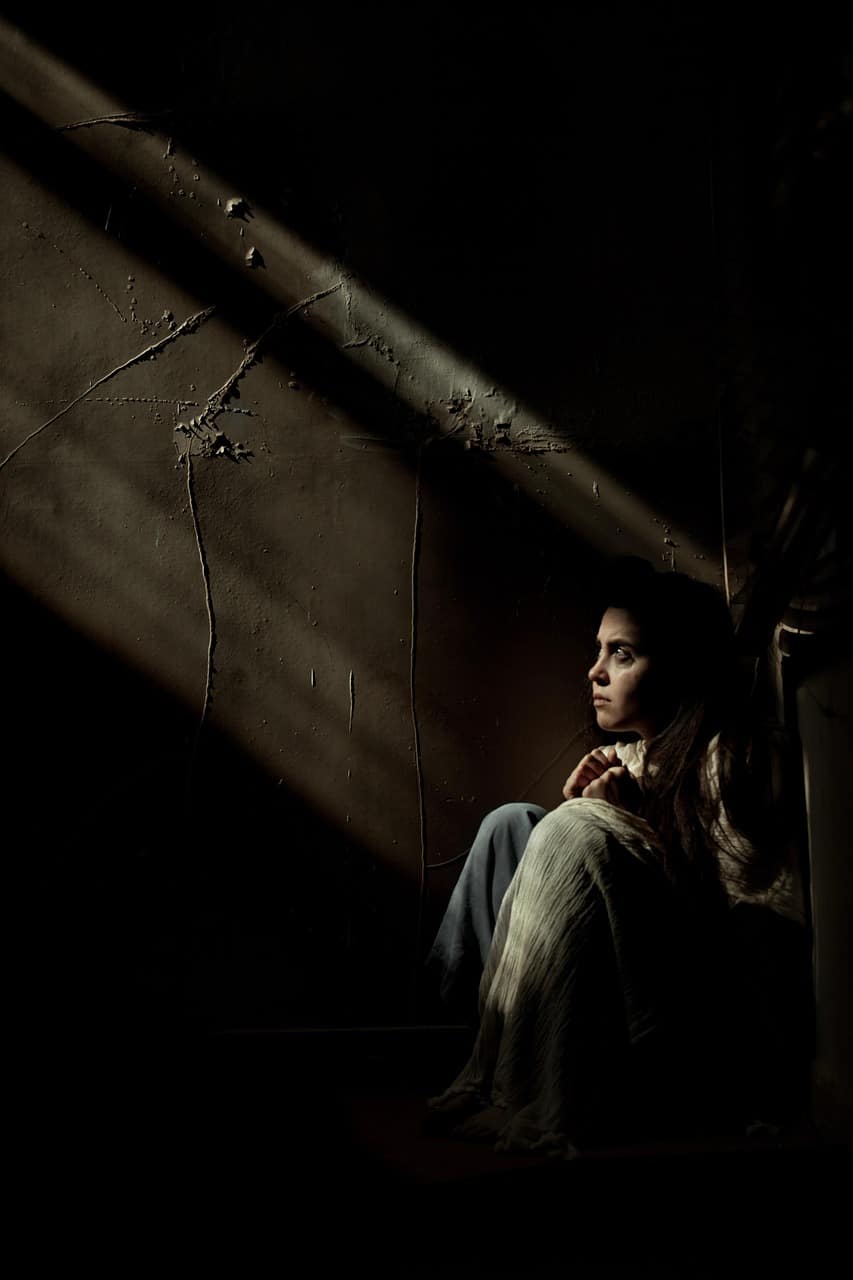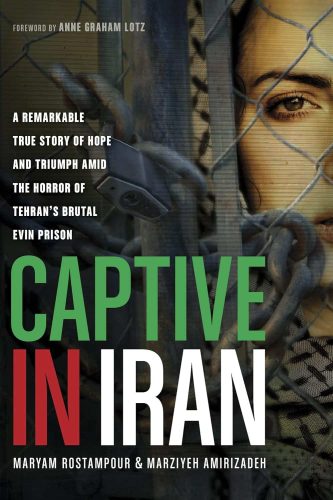“Whatever God has planned is what will happen.”
Authors: Maryam Rostampour and Marziyeh Amirizadeh
Maryam Rostampour and Marziyeh Amirizadeh are tricked into visiting the Iranian police station, responding to an incorrect notice about a car registration. What happens next is their sudden, vicious imprisonment for being Christians and a 259-day stint in the world’s most notorious prison, Evin. As Captive in Iran unravels, Maryam and Marziyeh share the story of their imprisonment, the deprivations and unexpected moments of connection and hope. They were both given a simple out: renounce Christ and stop sharing Christianity with strangers and they would be free to return to their lives; continue insisting on Christ and expect the death penalty. Neither flinched, and this story shows the miraculous results of their tenacity as an infamous prison becomes the only church some desperate women will ever know.
Captive in Iran is an empowering story through the real-life valley of the shadow. The story is of course focused on Maryam’s and Marziyeh’s experience in Evin, including the rampant starvation and malnutrition, physical and verbal abuse by the guards, and purposefully ambivalent medical care, as well as the continuing mystery around their actual charges, which seem mutable based on the whims of the Iranian government. However, Maryam and Marziyeh also use this narrative as a testament to the women they met along the way, sharing stories. Many women in the prison are unsure of their charges and clearly innocent; perhaps they attended a party where non-relative men were present. Perhaps they received communication from an unpopular political party. Perhaps their husband wants to get rid of them. Other women are guilty, yet there are mitigating circumstances. There are women in prison for murdering their husbands – husbands who were attempting to kill them. There are women in prison for being lesbians, having finally rejected the cruelty of the male society around them. There are women in prison for stealing, sentenced to death. All of them have stories and experiences, and Maryam and Marziyeh risk everything to reach out to every woman they meet, providing many with hope and compassion in a place full of darkness.
As Maryam and Marziyeh hold fast to their principles, praying in prison, sharing food, and sharing Jesus, the women around them become curious. Why are these two girls, sentenced to death, so different and why are they continuing to insist on death over denial? In Islam there is the concept of taqiyya, a lie that is allowed because it saves your life. Why do the girls not invoke taqiyya? Will their God not forgive them? Maryam and Marziyeh are constantly asked varieties of this question, and the stalwart nature of their faith and ability to speak to it inspires readers to something greater while also giving us an in-depth look at how Christians in other parts of the world are faring.

Image by Shima Abedinzade from Pixabay
While Captive in Iran is entertaining because of the extraordinary nature of what Maryam and Marziyeh experienced, it is also a call to action. It reveals both spiritual and temporal needs, highlighting the Kafkaesque corruption of the Iranian government, especially as it comes to women. Captive in Iran also showcases true Christianity at its heart, calling those of us who are lucky enough to be born into less antagonistic societies to wonder at our own cowardice, our own inability to talk about Christ at work or with friends because it might be uncomfortable, whereas these women continually risk death while undergoing torture for the right to speak of God. It convicts us, and many of us find ourselves asking: what would I do in this situation? This is what true Christianity looks like – facing death and yet still helping others, sharing the last piece of food, praying for enemies, and sitting with the condemned and offering them love and hope.
In the end, the book also speaks about the power of prayer to enact miracles and the power of Christian community. Eventually, Maryam and Marziyeh’s imprisonment becomes international news, with many writing to them in prison and governments across the world putting pressure on Iran to release the captives. As the letters flow into Evin, neither Maryam nor Marziyeh are allowed to read them, but the guards do, and they are transformed and exposed to a movement bigger than anything they have ever seen. As Christians across the globe join hands to pray for release, Maryam and Marziyeh continue spreading Christianity throughout the prison, and the miracle gains power and builds to a dramatic crescendo.
This book taught me more about prayer, about the importance of staying true to God and persevering through difficulty, than anything else I have ever read. I’ve read commentaries that talk about what it means to live a godly life in the face of adversity, but here is a living example, a translation that makes sense. Here are two real women who start and sustain a movement for God, who put the theory into practice and live for Jesus, unabashedly, consistently, loudly. Highly recommended.
– Frances Carden
Follow my reviews on Twitter at: https://twitter.com/xombie_mistress
Follow my reviews on Facebook at: https://www.facebook.com/FrancesReviews
- Book Vs Movie: The Shining - April 6, 2020
- Thankful For Great Cozy Mysteries - December 13, 2019
- Cozy Mysteries for a Perfect Fall - October 20, 2019


